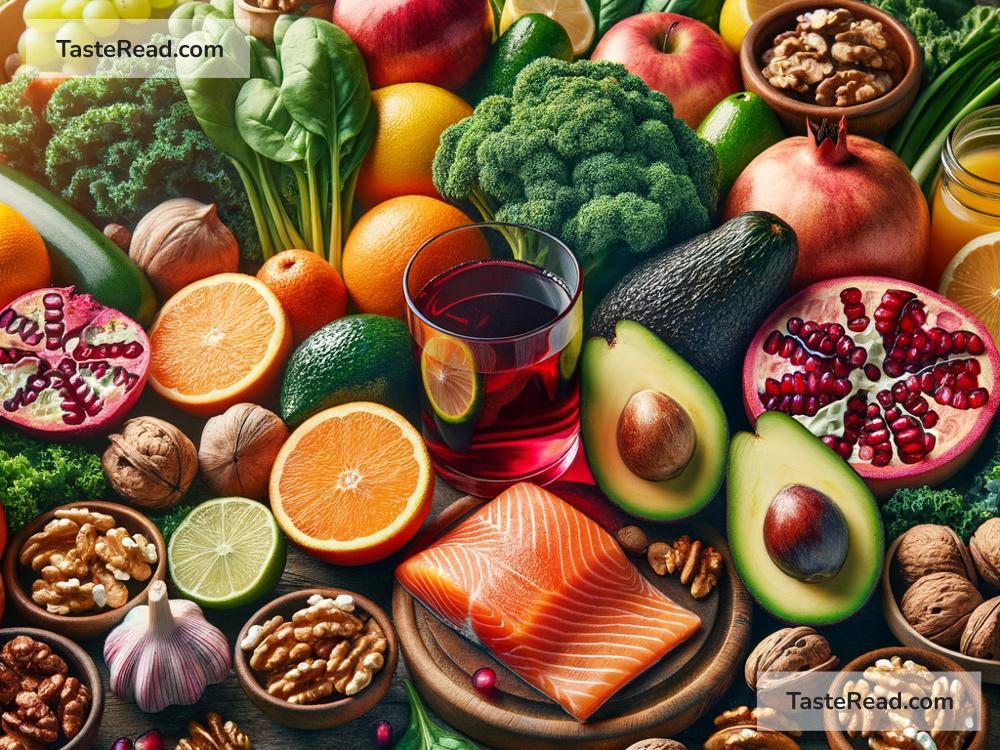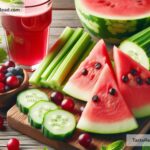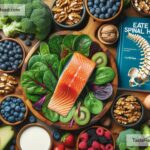Foods That Improve Vascular Flexibility: How to Keep Your Blood Vessels Healthy
Your blood vessels play a crucial role in your body, acting as highways that transport oxygen, nutrients, and blood to every part of your system. When your blood vessels are flexible, they can widen or narrow as needed, ensuring a smooth flow of blood and reducing strain on your heart. However, as we age or develop unhealthy habits, our blood vessels can become stiff, increasing the risk of conditions like high blood pressure, heart disease, and stroke.
The good news? What you eat can have a big impact on your cardiovascular health, including vascular flexibility. Here’s a look at some foods that can help keep your blood vessels healthy, flexible, and functioning optimally.
1. Leafy Green Vegetables
Leafy greens like spinach, kale, and arugula are packed with nutrients that enhance vascular health. They are rich in nitrates, natural compounds that your body converts into nitric oxide. Nitric oxide helps relax the blood vessels, allowing them to widen and stay elastic. This means better blood flow and less strain on your heart.
Leafy greens also contain potassium, magnesium, and antioxidants that protect your vessels from damage. Try adding spinach to your smoothies, incorporating kale into your salads, or cooking up some Swiss chard as a side dish.
2. Fatty Fish
Fatty fish like salmon, mackerel, and sardines are loaded with omega-3 fatty acids, which are excellent for heart and blood vessel health. Omega-3s reduce inflammation, lower blood pressure, and improve the elasticity of arterial walls. They also help prevent plaque buildup in your arteries.
For maximum benefits, aim to include fatty fish in your diet at least twice a week. If you’re not a fan of fish, consider taking a high-quality omega-3 supplement after consulting with your doctor.
3. Berries
Blueberries, strawberries, raspberries, and blackberries are powerhouses of antioxidants, especially flavonoids. These natural compounds help improve vascular flexibility by reducing oxidative stress and inflammation. Flavonoids also encourage the production of nitric oxide, which, as mentioned earlier, helps relax blood vessels.
Snack on fresh berries, blend them into a smoothie, or sprinkle them over your oatmeal to enjoy their benefits. Bonus: They’re delicious and low in calories!
4. Dark Chocolate
Yes, you read that right—chocolate can be good for your blood vessels! But not just any chocolate. Look for dark chocolate with at least 70% cocoa content. Cocoa contains flavonoids that can boost nitric oxide levels, relax the vessels, and improve blood flow.
Moderation is key here. Eating a small piece of dark chocolate (about 1 ounce) a few times a week can be beneficial, but don’t overdo it, as chocolate can also be high in calories and sugar.
5. Garlic
Garlic does more than add flavor to your meals—it’s a natural remedy for improving vascular flexibility. Garlic contains allicin, a compound that helps relax blood vessels and reduces blood pressure. Regular garlic consumption can also lower the risk of heart disease by improving circulation and reducing inflammation in your arteries.
You can chop garlic and add it to soups, sautés, or salad dressings. Roasted garlic also makes a creamy, delicious spread for bread.
6. Nuts and Seeds
Nuts like almonds, walnuts, and pistachios, along with seeds such as flaxseeds and chia seeds, are wonderful for cardiovascular health. They are rich in healthy fats, magnesium, and fiber, all of which contribute to better vascular flexibility. Magnesium, in particular, helps your blood vessels relax and prevents stiffness.
Snack on a handful of nuts, add seeds to your yogurt or smoothie, or sprinkle them on top of your salad for a heart-healthy boost.
7. Beets
Beets and beetroot juice are rich in nitrates, just like leafy greens. These nitrates enhance nitric oxide production, relaxing and widening blood vessels and improving blood flow. Studies have shown that beetroot juice can improve vascular function even within hours of consumption!
Roasted beets make a great addition to salads, while beetroot juice is a refreshing and nutrient-packed beverage to enjoy.
8. Citrus Fruits
Oranges, lemons, grapefruits, and limes are loaded with vitamin C and flavonoids, which promote vascular health. Vitamin C strengthens the walls of your blood vessels, while flavonoids improve flexibility and circulation. Citrus fruits also help reduce inflammation and lower blood pressure, keeping your heart in great shape.
Consider starting your day with a glass of fresh orange juice, adding lemon to your water, or snacking on grapefruit slices for a tangy treat.
9. Whole Grains
Whole grains like oats, quinoa, and brown rice contain fiber and antioxidants that support better vascular health. Fiber can help lower cholesterol levels, reducing the risk of plaque buildup in your arteries. This, in turn, keeps your blood vessels flexible and open.
Swap refined grains like white bread and pasta for their whole-grain alternatives to improve your cardiovascular health over time.
10. Green Tea
Green tea is a soothing drink with powerful health benefits. It contains catechins, a type of flavonoid that improves blood vessel function and flexibility. Green tea also fights inflammation and oxidative stress, keeping your cardiovascular system in tip-top shape.
Sip on a hot cup of green tea in the morning or enjoy it iced on a warm day for a refreshing and heart-healthy beverage.
Final Thoughts
Your diet plays a major role in the health of your blood vessels. By including the foods mentioned above—leafy greens, fatty fish, berries, dark chocolate, garlic, nuts, seeds, beets, citrus fruits, whole grains, and green tea—you can help improve vascular flexibility, enhance blood flow, and lower your risk of heart-related illnesses.
Start small. Incorporate one or two of these foods into your routine each week, and gradually build a heart-healthy diet. Pair your eating habits with regular exercise, stress management, and adequate sleep for optimal vascular health. Remember, the sooner you take care of your blood vessels, the healthier you’ll be in the long run!


